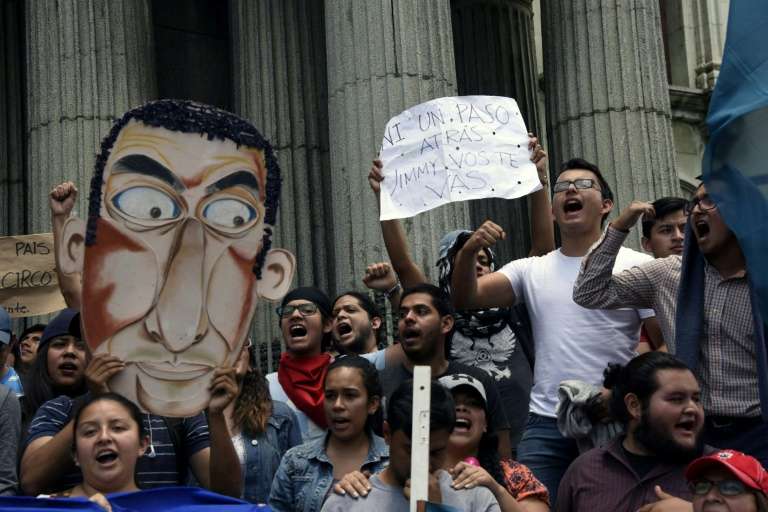This material belongs to: teleSUR.
Under the changes Congress, parties’ secretary-generals and candidates would not have been allowed to be held criminally responsible for campaign-financing violations.
Guatemala’s Congress has announced it will withdraw controversial reforms that critics had described as a serious setback in the country’s fight against political corruption.
On Wednesday, Guatemala’s Congress approved a “national emergency” decree to curb penalties for illegal election financing after President Jimmy Morales was linked to suspected irregularities during his 2015 election campaign.
Dozens of protesters took to the streets in the capital Guatemala City.
They said the amendments were not enough and demanded the bill be completely vetoed.
“The Congress’ decision to step back is a bit useless,” said activist Helen Mack, head of the anti-corruption organization Fundacion Mirna Mack.
“The indignation reached a peak; now the Congress can remove the decrees, their intentions of supporting impunity and corruption remain clear, the president, the Congress, the judicial system, are part of the same problem,” she added.
Along with attorney Alfonso Carrillo, Guatemala’s ombudsman Jordan Rodas Andrade, and the rights groups Accion Ciudadana and Somos, Mack filed a lawsuit to the Constitutional Court to challenge the bill.
Morales, whose immunity from prosecution was reinforced by Congress earlier this week, had said he would veto the reforms if they were found to be harmful to the nation.
And as the public outcry mounted, leaders of the principal parties in Congress agreed to vote on Friday to cancel the measures, independent congressman Oliverio García said.
Under the changes Congress made Wednesday to Article 407 of the Criminal Code, parties’ secretary-generals and candidates would not have been allowed to be held criminally responsible for campaign-financing violations.
Instead, the legislation — which passed by a vote of 107-16 — said it was up to party accountants to ensure there were no irregularities.
Morales also urged Guatemalans on Thursday to remain calm and peaceful amid a charged atmosphere.
The reforms were widely criticized in Guatemala, with opposition from the press and various government institutions and the human rights office.
The Coordinating Committee of Agricultural, Commercial, Industrial and Financial Associations, a powerful business federation, had slammed the penal-code changes and called on President Morales (a former secretary-general of the National Convergence Front party who became its presidential candidate in 2015) to veto them.
On Monday, Congress shielded Morales from prosecution for alleged illegal financing during his successful 2015 election campaign, a vote that came after a legislative committee had recommended that his immunity be stripped.
Guatemalan prosecutors and the United Nations-backed International Commission Against Impunity in Guatemala had leveled the accusations against Morales, who rose to power on an anti-corruption platform.


